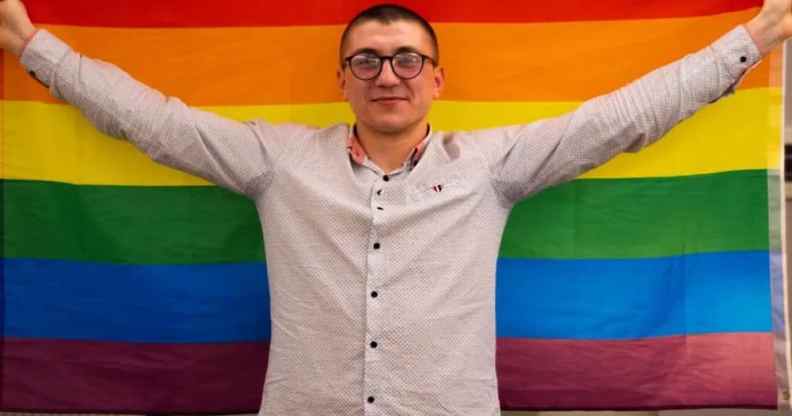Soldier ‘abused for being gay’ told to provide ‘intimate pictures’ to ‘prove’ his sexuality

(Instagram/ marin_n79)
A former soldier in Moldova claims he faced abuse for being gay, but has now been told to provide “intimate pictures” to “prove” his sexuality.
In Moldova, all young people are required to complete 12 months of mandatory military service once they turn 18, although this is reduced for those in higher education.
Shortly after gay 18-year-old Marin Pavlescu was conscripted into the army, he borrowed his superior’s phone to call his boyfriend. He was unaware, however, that their conversation was being recorded.
After his sexuality was revealed to his entire unit, Pavlescu said he was subjected to intense harassment and discrimination “on a daily basis”, as well as physical violence, which he described as “degrading and humiliating”.
No longer able to cope, he applied for leave to take care of his ill mother, but knew as soon as he left that he would not be going back.
“I even thought of suicide… It is very difficult to get through the physical and psychological pressure there,” he told the Institute for War and Peace Reporting.
But in Moldova, leaving mandatory military service is illegal, and the gay teenager could be charged with desertion, a crime that carries a fine and a possible five-year prison sentence.
Following his period of leave, on the day he was supposed to return to his unit, Pavlescu said in an Instagram video: “I am fully aware that my actions will be seen as desertion. I take responsibility for the possible punishment, including imprisonment, if the judge deems it necessary to apply it to me.
“But I deserve respect and a chance for happiness.”
According to Moldova’s criminal code, a person cannot be guilty of desertion if they leave military service under “serious circumstances”. But Pavlescu’s lawyer, Doina Ioana Straisteanu, said there is no precedent for whether or not homophobic harassment would count.
Straisteanu filed a complaint with the military inspectorate of the Ministry of Internal Affairs, and the Ministry of Defence launched an internal investigation into his claims of discrimination.
However, the investigation found that “intimidation, humiliation and discriminatory actions regarding soldier Pavlescu on the grounds that he was homosexual were not found”.
The soldier’s case has now reached Moldova’s non-discrimination council, where major of justice Petru Corciun, representing the Ministry of Defence gave evidence.
Backing the investigation’s finding that there was no proof Pavlescu is gay, he told the non-discrimination hearing: “In order to make a correct qualification and to start from that qualification whether this person is homosexual or not, first it must be proved that the person in question, on the basis of a medical certificate, is indeed homosexual.
“A simple oral statement [made by the person concerned] cannot be used as the basis for this person’s homosexual orientation.
“The person can show that he is gay through pictures from his intimate life that attest to this. In the complaint filed with the council, I find no evidence that he is gay.”
Pavlescu wrote on Facebook: “I will never present any pictures of how I have sex or medical certificates. I am gay and that’s it.”
The former soldier’s case is ongoing, but the Coalition for Inclusion and Non-Discrimination, a coalition of pro-equality NGOs, has released a statement with demands for Moldova’s Ministry of Defence.
It demanded that Moldova “take measures to strengthen institutional capacity for ensuring the right to equality, preventing and combating discrimination”, and that the Ministry of Defence organise and implement equalities training for employees.

